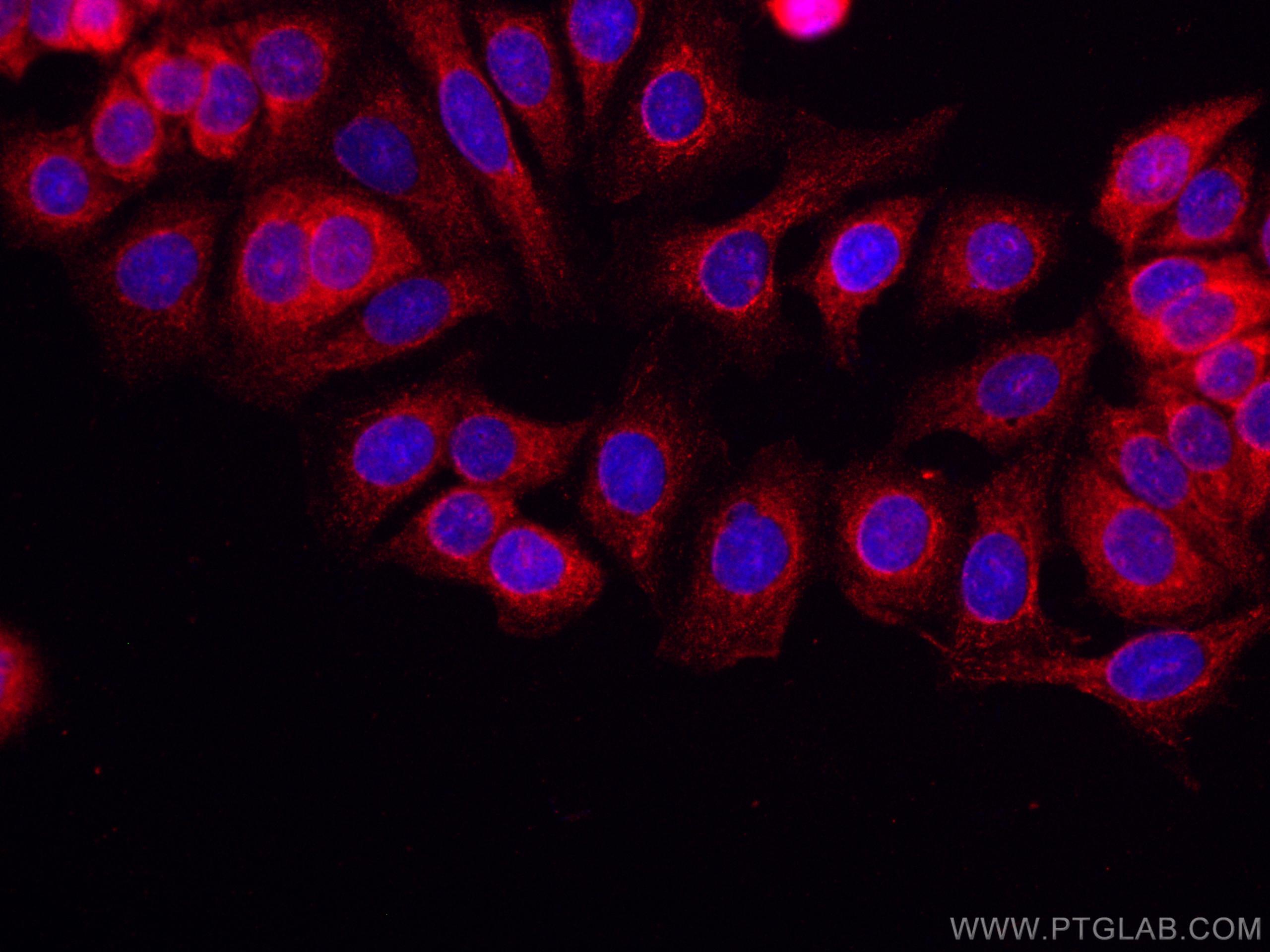Anticorps Monoclonal anti-IPO4
IPO4 Monoclonal Antibody for IF
Hôte / Isotype
Mouse / IgG1
Réactivité testée
Humain
Applications
IF
Conjugaison
CoraLite®594 Fluorescent Dye
CloneNo.
2F3H2
N° de cat : CL594-67549
Synonymes
Galerie de données de validation
Applications testées
| Résultats positifs en IF | cellules MCF-7, |
Dilution recommandée
| Application | Dilution |
|---|---|
| Immunofluorescence (IF) | IF : 1:50-1:500 |
| It is recommended that this reagent should be titrated in each testing system to obtain optimal results. | |
| Sample-dependent, check data in validation data gallery | |
Informations sur le produit
CL594-67549 cible IPO4 dans les applications de IF et montre une réactivité avec des échantillons Humain
| Réactivité | Humain |
| Hôte / Isotype | Mouse / IgG1 |
| Clonalité | Monoclonal |
| Type | Anticorps |
| Immunogène | IPO4 Protéine recombinante Ag2281 |
| Nom complet | importin 4 |
| Masse moléculaire calculée | 1081 aa, 118 kDa |
| Poids moléculaire observé | 120 kDa |
| Numéro d’acquisition GenBank | BC003690 |
| Symbole du gène | IPO4 |
| Identification du gène (NCBI) | 79711 |
| Conjugaison | CoraLite®594 Fluorescent Dye |
| Excitation/Emission maxima wavelengths | 588 nm / 604 nm |
| Forme | Liquide |
| Méthode de purification | Purification par protéine G |
| Tampon de stockage | PBS avec glycérol à 50 %, Proclin300 à 0,05 % et BSA à 0,5 %, pH 7,3. |
| Conditions de stockage | Stocker à -20 °C. Éviter toute exposition à la lumière. L'aliquotage n'est pas nécessaire pour le stockage à -20oC Les 20ul contiennent 0,1% de BSA. |
Informations générales
Importin‐4 (IPO4) belongs to the importin β family which directs the cargo to pass through the nuclear pore complex via transient interaction with nucleoporins. IPO4 is responsible for transporting histones H3 and H4 into the nucleus for chromatin assembly. Recently IPO4 has been reported to contribute to gastric cancer progression and poor prognosis.
Protocole
| Product Specific Protocols | |
|---|---|
| IF protocol for CL594 IPO4 antibody CL594-67549 | Download protocol |
| Standard Protocols | |
|---|---|
| Click here to view our Standard Protocols |


